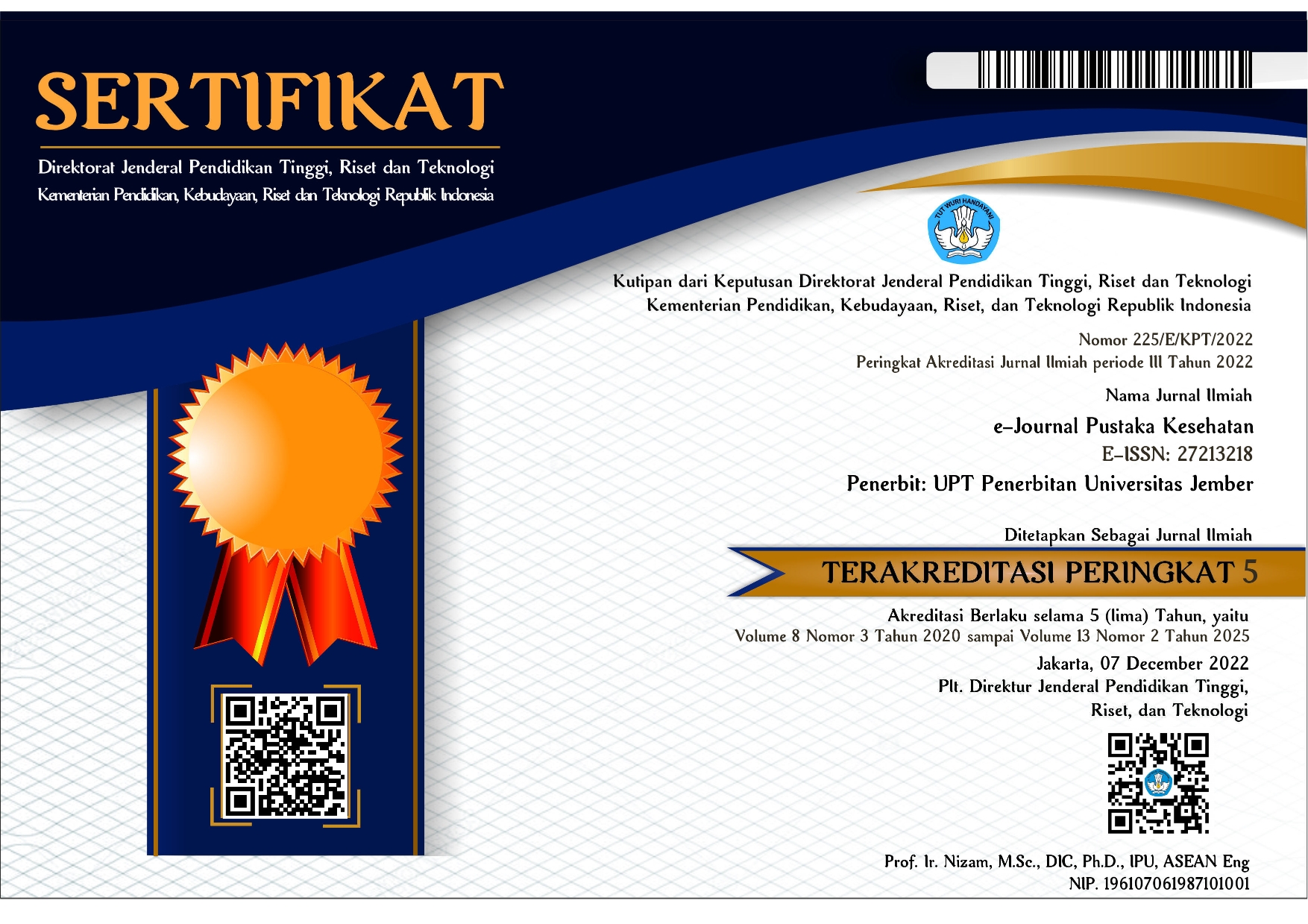Stigma terhadap Gangguan Jiwa dan Kaitannya dengan Praktik Seksisme dalam Budaya Paternalistik Bali
DOI:
https://doi.org/10.19184/pk.v11i1.34847Keywords:
Balinese culture; mental disorder; paternalism; sexism; stigmaAbstract
Stigma toward mental illness is a complex construct incorporating personal, social, and structural. One of the social components that might significantly comprise stigma is the cultural aspect. Asian culture, generally, and Balinese culture, especially, is heavily embedded with the practice of paternalism which is a part of sexism. The practice of sexism as one form of discrimination might imply a high tendency to stigmatize people with mental illness. Therefore, it would be relevant to discuss the possible correlation between stigma and mental illness within the context of the predominant sexism-loaded paternalistic culture in Bali. This literature review covers several subtopics, including stigma and discrimination, sexism and its correlation with mental illness, and cultural aspects that might influence stigma concluded with recommendations for culturally sensitive mental health practice.
Downloads
References
[2] Mehta N, Kassam A, Leese M, Butler G, Thornicroft G. Public attitudes towards people with mental illness in England and Scotland, 1994–2003. The British Journal of Psychiatry. 2009: 278-284.
[3] Corrigan PW, Druss BG, Perlick DA. The Impact of Mental Illness Stigma on Seeking and Participating in Mental Health Care. Psychological Science in the Public Interes. 2014: 37-70.
[4] Bhugra D, Bhui K. Cross Cultural Psychiatric Assessment. In Bhattacharya R, Cross S, Bhugra D. Clinical topics in cultural psychiatry. London: RCPsych Publications. 2010: 247-260.
[5] Abdullah T, Brown TL. Mental illness stigma and ethnocultural beliefs, values, and norms: An integrative review. Clinical Psychology Review. 2011: 934–948.
[6] Rusch N, Lieb K, Bohus M, Corrigan PW. Self-Stigma, Empowerment, and Perceived Legitimacy of Discrimination Among Women With Mental Illness. Psychiatric Services. 2006: 399-402.
[7] Centers for Disease Control and Prevention. Mental Health. [Online]. 2015. Available from: http://www.cdc.gov/mentalhealth/basics/stigma-illness.htm.
[8] Thornicroft G, Brohan E, Kassam A, Lewis-Holmes E. Reducing stigma and discrimination: Candidate interventions. International Journal of Mental Health Systems. 2008: 1-7.
[9] Majstorović D, Lassen I. Living with Patriarchy Amsterdam/Philadelphia: John Benjamins Publishing Company. 2011.
[10] Glick PS, Fiske ST. The Ambivalent Sexism Inventory: Differentiating Hostile and Benevolent Sexism. Journal of Psrsonality and Social Psychology. 1996: 491-512.
[11] Glick PS. BS AT WORK: How Benevolent Sexism Undermines Women and Justifies Backlash. In Gender & Work: Challenging conventional wisdom; 2013; Boston: Harvard Business School. 1-7.
[12] Holzinger A, Floris F, Schomerus G. Gender differences in public beliefs and attitudes about mental disorder in western countries: A systematic review of population studies. Epidemiology and Psychiatric Sciences. 2012: 73-85.
[13] Rogers A, Pilgrim D. A Sociology of Mental Health and Illness Fifth Edition Berkshire: McGraw-Hill. 2014.
[14] Siegel C, Haugland G, Reid-Rose L, Hopper K. Components of Cultural Competence in Three Mental Health Programs. Psychiatric Services. 2011: 626-631.
[15] Cheon BK, Chiao JY. Cultural Variation in Implicit Mental Illness Stigma. Journal of Cross-Cultural Psychology. 2012: 1058-1062.
[16] Artika IW. Bali Jelek. In Suryawan IN. Sisi di Balik Bali: Politik Identitas, Kekerasan, dan Interkoneksi Global. Denpasar: Udayana University Press; 2012: xiii-xxiii.
[17] Ilic M, Reinecke J, Bohner G, Rottgers HO, Beblo T, Driessen M, et al. Belittled, Avoided, Ignored, Denied: Assessing Forms and Consequences of Stigma Experiences of People With Mental Illness. Basic and Applied Social Psychology. 2013: 31-40.
[18] Atmaja J. Bias Gender Perkawinan Terlarang pada Masyarakat Bali Denpasar: Udayana University Press. 2008.
[19] Burn SM, Busso J. Ambivalent Sexism, Scriptural Literalism, and Religiosity. Psychology of Women Quarterly. 2005: 412-418.
[20] Suryawan IN. Sisi di Balik Bali: Politik Identitas, Kekerasan, dan Interkoneksi Global Denpasar: Udayana University Press. 2012.
[21] Kopera M, Suszek H, Bonar E, Myszka M, Gmaj B, Ilgen M, et al. Evaluating Explicit and Implicit Stigma of Mental Illness in Mental Health Professionals and Medical Students. Community Mental Health Journal. 2014: 1-7.
[22] Stull LG, McGrew JH, Salyers MP, Ashburn-Nardo L. Implicit and Explicit Stigma of Mental Illness: Attitudes in an Evidence-Based Practice. J Nerv Ment Dis. 2013: 1072–1079.
[23] Ramakrishnan P, Rane A, Dias A, Bhat J, Shukla A, Lakshmi S, et al. Indian Health Care Professionals’ Attitude Towards Spiritual Healing and Its Role in Alleviating Stigma of Psychiatric Services. Journal of Religion and Health. 2014: 1800-1814.
Downloads
Published
Issue
Section
License
e-Journal Pustaka Kesehatan has CC-BY-SA or an equivalent license as the optimal license for the publication, distribution, use, and reuse of scholarly work. Authors who publish with this journal retain copyright and grant the journal right of first publication with the work simultaneously licensed under a Creative Commons Attribution-ShareAlike 4.0 International License that allows others to share the work with an acknowledgment of the work's authorship and initial publication in this journal.







